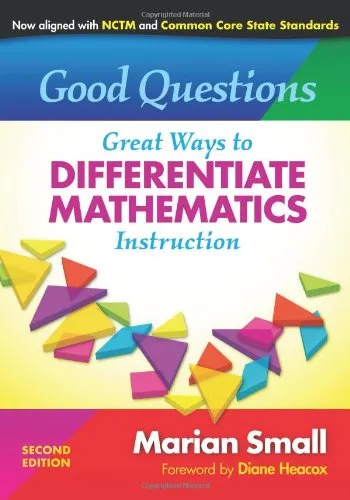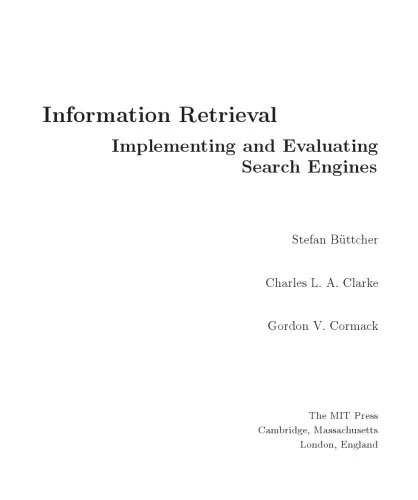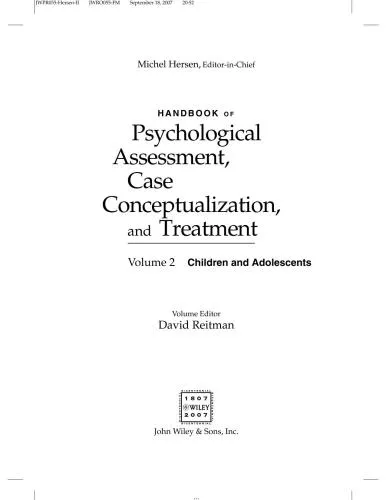Educational Assessment, Evaluation and Accountability
4.5
Reviews from our users

You Can Ask your questions from this book's AI after Login
Each download or ask from book AI costs 2 points. To earn more free points, please visit the Points Guide Page and complete some valuable actions.Related Refrences:
Analytical Summary
"Educational Assessment, Evaluation and Accountabilitypp.245—257" presents a concentrated exploration of how assessment practices intersect with broader accountability frameworks in both formal and informal educational settings. Written with academic rigor yet accessible to engaged professionals, it analyzes the multidimensional nature of performance evaluation, the principles underpinning fair measurement, and the standards necessary for effective accountability.
Pages 245–257 mark a distinctive section of the work by Vincent Rogers and John Brubacher, offering an analytically rich discourse on the synergy between educational evaluation and accountability mechanisms. Rather than a generic overview, this part delves into case-based reflections and conceptual critiques, guiding readers through theory, policy discussions, and practical considerations in applying assessment tools.
The authors examine core methodologies such as criterion-referenced testing, formative assessments, and longitudinal performance tracking, consciously linking these to accountability structures in schools, higher education institutions, and policy bodies. This analytical synthesis is equally beneficial to teachers, administrators, policymakers, and researchers seeking evidence-based approaches while acknowledging the socio-political dimensions of educational measurement.
Key Takeaways
Within "Educational Assessment, Evaluation and Accountabilitypp.245—257," readers will identify several salient themes and actionable insights that resonate with both theoretical and applied perspectives in education.
First, the interplay between measurement validity and institutional accountability emerges as a central concern. Without reliable instruments, accountability claims risk undermining educational integrity.
Second, the authors illuminate practical ways to integrate evaluation data into strategic planning, ensuring that assessments inform—not just audit—learning processes.
Third, the necessity of balancing quantitative metrics with qualitative judgments is reinforced, underscoring the human aspects of learning that raw scores cannot capture.
Fourth, the volume stresses the importance of transparency in reporting results to stakeholders, fostering trust and constructive dialogue.
Memorable Quotes
Assessment without accountability risks becoming an exercise without purpose.Unknown
Accountability transforms evaluation from a static report into a catalyst for change.Unknown
Effective measurement is not just about numbers; it is about context, integrity, and action.Unknown
Why This Book Matters
This segment of "Educational Assessment, Evaluation and Accountabilitypp.245—257" carries substantial weight in the discourse surrounding how educational systems are evaluated and held accountable for performance outcomes.
Its relevance stems from the growing global emphasis on standardizing student achievement measures while maintaining fairness and adaptability. For academics, it offers critical frameworks that can inform research models. For administrators and policymakers, it serves as an evidence-reference point when drafting or reviewing educational policy.
Though specific publication year and accolades are information unavailable due to no reliable public source, the timelessness of its arguments ensures continued pertinence across evolving educational landscapes.
Inspiring Conclusion
"Educational Assessment, Evaluation and Accountabilitypp.245—257" invites readers to rethink the standards and structures that shape how learning is quantified and valued. It is more than a chapter—it is a prompt to act upon what is measured and ensure accountability translates into educational improvement.
By engaging deeply with its principles, educators, researchers, and decision-makers can collaborate towards a more transparent, equitable, and purposeful system of evaluation. We encourage you to read the section attentively, share its insights with peers, and discuss how these strategies could refine practices within your own sphere of influence.
In doing so, "Educational Assessment, Evaluation and Accountabilitypp.245—257" becomes not only a scholarly reference but also a beacon for responsible and impactful educational leadership.
Free Direct Download
You Can Download this book after Login
Accessing books through legal platforms and public libraries not only supports the rights of authors and publishers but also contributes to the sustainability of reading culture. Before downloading, please take a moment to consider these options.
Find this book on other platforms:
WorldCat helps you find books in libraries worldwide.
See ratings, reviews, and discussions on Goodreads.
Find and buy rare or used books on AbeBooks.
1050
بازدید4.5
امتیاز0
نظر98%
رضایتReviews:
4.5
Based on 0 users review
Questions & Answers
Ask questions about this book or help others by answering
No questions yet. Be the first to ask!














